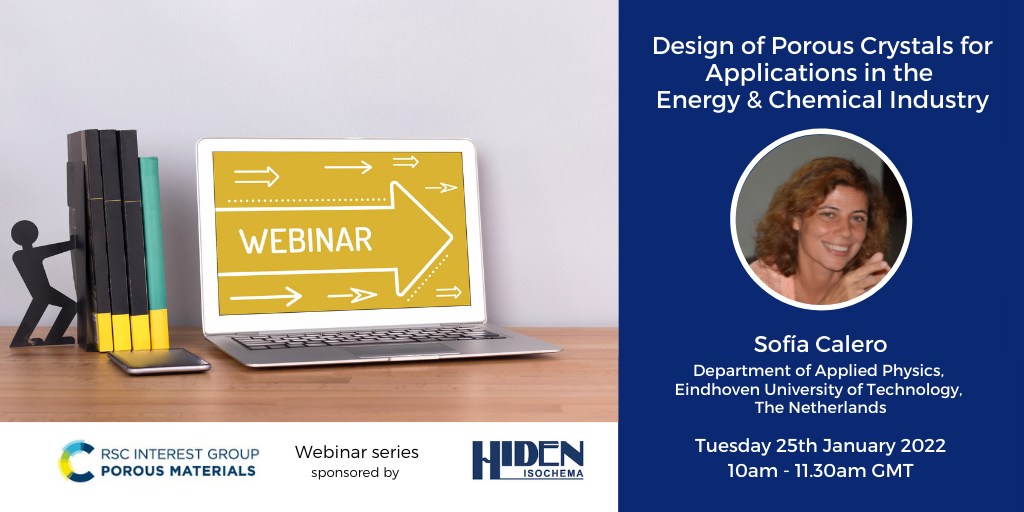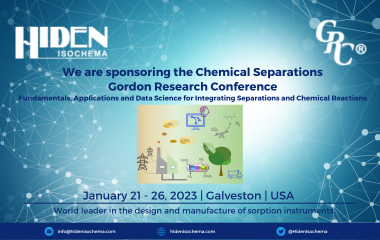Webinar: Design of Porous Crystals for Applications in the Energy & Chemical Industry
The first webinar of 2022 from the Royal Society of Chemistry Porous Materials interest group will be presented by Sofía Calero, of Eindhoven University of Technology, The Netherlands.
The webinar, sponsored by Hiden Isochema, will focus on the design of porous crystals for applications in the energy and chemical industries.
Date: Tuesday 25th Jan, 10am GMT
Register here: Webinar: Design of Porous Crystals for Applications in the Energy & Chemical Industry

Webinar summary
Gas storage & separation is essential for energy production and for the Chemical Industry. In the petroleum industry, isomerization processes generate a mixture of isomers of alkanes that require separation and recycling. There are other possibilities of obtaining refined fuels from raw material different from petroleum that also require gas separation. For example, the Fischer Tropsch Gas-To-Liquid process provides liquid hydrocarbons from coal, biomass or natural gas. The process can be optimized by recycling compounds of the flue gas mixture. Related to energy and carbon capture & storage, the separation of hydrogen from carbon dioxide or the effective separation of carbon dioxide, carbon monoxide and oxygen are also essential. Ordered crystalline porous materials, such as zeolites, metal-organic frameworks (MOFs) or zeolitic imidazolate framework (ZIFs) offer the potential for selective adsorption exploiting differences in molecular configurations. Zeolites are readily available, very stable, and cheap. MOFs and ZIFs are less stable than zeolites, but they exhibit almost unlimited structural possibilities because of the wide variety of combinations of metal atoms, organic linker molecules and the building blocks used in self-assembly during synthesis.
We design porous crystals as well as conceptual separation processes consisting of several adsorptive steps using a combination of experiments and simulations. Molecular simulation is currently fast and accurate enough to allow rapid evaluation of structures for storage and/or separation devices. For effective separation, one needs to find materials with high adsorption selectivity and with the adequate capacity for use in traditionally used fixed-bed devices. Hence, crystalline structures need to be examined for their ability to conduct gas separation based on adsorption equilibrium, selectivity, diffusion, permselectivity, structural features and kinetics.
Follow the RSC Porous Materials Interest Group on Twitter


